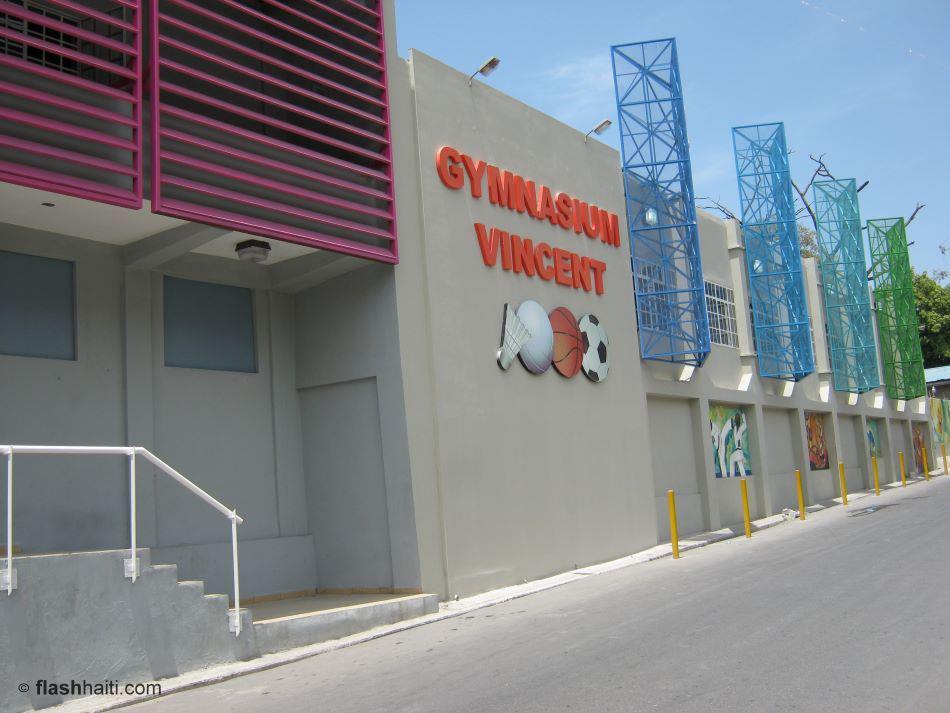The question of the merger of the Ministry of Youth, Sports and Civic Action (MJSAC) with another ministry, or even its outright elimination, has become a recurrence in the Haitian political sphere. With each new government, the MJSAC constitutes a target to be taken down at all costs. Proponents of this position generally defend it around two arguments: On the one hand, the relevance of such a Ministry is called into question given the modest, or even non-existent, impact of its service offering on citizens/taxpayers . On the other hand, the consolidation of public finances through budgetary rationalization is highlighted. If at first glance these arguments seem to be very convincing and above all popular, they have two major limitations: First, they do not take into account the potential of sport in social transformation and peacebuilding. Second, budgetary rationalization should not be an end in itself.
Sport as a vector of peace
In the current context, dominated by increased insecurity, sport can be a strategic lever playing a determining role in the pacification of the metropolitan area of Port-au-Prince. Being part of the social sector, sport carries a set of values essential to the fomenting of a culture of peace. This pacifying role of sport finds broad consensus among researchers, professionals and practitioners in the sector. Since the beginning of the 1980s, public authorities have gradually associated “a new social utility with sport in its participation in the fight against the crisis of social bonds (Lefèvre, 2012)”. Indeed, through this new role, public authorities have put in place measures based on sport to respond urgently to the phenomena of urban violence which has animated certain working-class neighborhoods (Lefèvre, 2012). This is a dual dimension of sport in the fight against delinquency. On the one hand, it can be linked to preventive roles by setting up programs of physical, sporting and leisure activities which integrate the population like the “Summer Preventive Operations (OPE)” system put in place since 1982 in France. On the other hand, sport can intervene at a corrective level by instilling the values linked to sports, such as respect for the rules, solidarity, “sportsmanship”, fraternity, tolerance, etc., in young people (Senatus, 2022) .
Abounding in the same direction, Pantaléon (2003) maintains that “sporting activity must be considered as a means of anchoring in society, a tool to hook young people, to give them benchmarks”. Therefore, the implementation of a sports and citizenship policy is capable of fomenting moral, ethical values and love for the homeland among the population (Senatus, 2022). Should we remind the current Prime Minister, Mr. Gary Conille, who is a former senior United Nations official, that in a resolution taken by the United Nations in 2012, “sport is recognized[comme] means of promoting education, health, development and peace (UN, 2012)”. The idea was to encourage all stakeholders to do everything possible to put sport at the service of development and peace within a common vision (Senatus 2022). To a large extent, sport has been integrated into the United Nations General Assembly’s 2030 sustainable development agenda:
“Sport is also an important element of sustainable development. We appreciate his growing contribution to development and peace through the tolerance and respect he advocates; the empowerment of women and youth, the individual and the community; and achieving health, education and social inclusion objectives”
However, to put sport at the service of peace, the Ministry must have what Mazouz (2017) calls “the capacity to deliver”. It is obvious that in current conditions the Ministry does not have a managerial strategy enabling it to fulfill this public service mission. Consequently, far from any idea of merging or abolishing the MJSAC, the government must review the management model of this institution and place this ministry at the heart of a strategy of pacification and national reconciliation following the example of the victory of the South Africa’s Springboks at the 1995 Rugby World Cup who became a symbol of post-apartheid reconciliation for the entire nation (Tribolo, 2022).
What should be the broad outlines of the Ministry’s roadmap in the current situation?
Succinctly, the broad outlines of the roadmap must include realistic objectives in relation to time, resources and the situation. We therefore propose these four (4) major projects for the transition period ending with the inauguration of a democratic government on February 7, 2026:
- Promoting peace through sport: Develop and support all community sports initiatives that promote cohesion between the population and the promotion of peace.
- Sports programs for development and peace: Collaborate with international organizations that support sport for peace, such as the United Nations and the Conference of Ministers of Youth and Sports of French-speaking countries (CONFEJES) in the design and management of programs sports and citizenship among young people.
- Education and awareness: Integrate educational modules on peace and conflict resolution into the various sports programs with the aim of instilling these values in practitioners.
- Collaboration and partnership: Develop partnerships with non-governmental organizations both locally and internationally, such as UN agencies, sports federations and associations, etc. This will make it possible to maximize the impact of the ministry’s various programs by benefiting from the expertise of the various partners. Likewise, collaborations with other sectoral ministries must be put in place.
Strategic management, an asset for the Ministry
In the current situation, the ministry must opt for sectoral strategic management in developing collaborations with sports federations, municipalities, civil and youth associations. Sectoral strategic management will allow a pooling of forces and complementarity of skills and expertise to address shared challenges in an integrated manner (Senatus, 2023). In the same vein, strategic management will boost the capacity of the MJSAC to deliver the content of the roadmap assigned to it by the head of government.
Likewise, the Ministry must carry out an overall diagnosis of its service offering both internally and externally. To achieve this, we recommend, among other things: the use of management tools such as the MOFF matrix. This tool will allow it to determine its strengths and weaknesses (internal factors) and the threats and opportunities of the environment in which it operates (external factor). Thus, the ministry will be able to use its strengths to mitigate the impact of its weaknesses and opportunities to counter threats. Therefore, it becomes necessary to produce service improvement plans on a continuous basis.
In addition, the ministry must put in place a management dashboard system which will allow it to monitor the evolution of key management indicators and ultimately periodically evaluate its performance. To achieve this, the ministry must first define its strategic and operational objectives in a SMART manner and performance indicators in order to have a real-time view of the results and to be able to intervene in time if deviations from the targets are found. detected. For example, an indicator could be: occupying 70% of the free time of young people in working-class neighborhoods by implementing a sports and leisure program.
Likewise, this dashboard allows the ministry to collect a considerable body of data on its internal and external environment. This data will facilitate decision-making based on evidence. The advantage of this management dashboard system lies in its ability to allow the ministry to constantly monitor the variables to improve, those which are evolving correctly, etc. Ultimately, this dashboard will create a feedback loop necessary to achieve the expected results.
Finally, the political-administrative interface must be better articulated by reducing or even stopping using managers as cogs in the government machine (Mazouz, 2017). On the contrary, it must make the most of the managerial capacities of managers by giving them more autonomy. This autonomy does not come naturally. It must be accompanied by greater accountability of department managers.
Par Luxon Senate, MAP
Specialist in management of sports organizations,
Founder of the Center for Research and Innovation in Sport.
Bibliographies
Lefèvre, N. (2012). Sport and special education: Preventing delinquency? The Sociograph, 38, 43-51.
Mazouz, B., Lemay, L., Lozeau, D., & Maltais, D. (2017). Management by results: concepts and practices for managing the performance of state organizations. University of Quebec Press.
UN (2012, November). The General Assembly highlights the importance of teaching democracy and the UN Action Plan on Sport for Development and Peace. UN: https://www.un.org/press/fr/2012/AG11316.doc.htm
Pantaleon, N. (2003). Socialization through sporting activities and young people with social difficulties. Cairn: https://doi.org/10.3917/empa.051.0051
Senatus, L. (2022). Design of a public sports policy to combat juvenile delinquency in working-class neighborhoods of the metropolitan area of Port-au-Prince, ENAP 2022
Senate, L. (2023). Proposal for a move to results-based management at the Ministry of Youth, Sports and Civic Action to improve the impact of the service offering. ENAP 2023
Tribolo, J. (2022). Sport and peace, a marriage of convenience? A look back at thirty years of use of sport in the service of peace by the United Nations. The United Nations Observer, 52(2022-1), pp-35.







